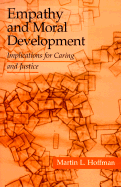1 - Introduction and Overview
Published online by Cambridge University Press: 05 June 2012
Summary
When I tell people my field is moral development, the first response is usually silence, sometimes “Oh!” They think I mean religion, telling the truth, the decline of traditional family life, and prohibitions against drugs, alcohol, and teenage pregnancy. When I tell them my interest is people's consideration for others, they perk up at first but then say something like it must be frustrating to study that because everybody is interested in themselves; who cares about anyone else, except maybe their family? But when I say humans could not have survived as a species if everyone cared only about himself, they pause, think about it, and then say something like “You might be right.” The evolution argument carries weight, as though it were self-evident that hunters and gatherers had to help each other to survive, so humans must have helping genes.
In any case, it is in this end-of-millennium, first-world context of competitive individualism and little caring for others that some of us study prosocial moral behavior – knowing full well that however much a person cares about others, when the chips are down, the individual thinks of himself first: He or she is not the other. People do make sacrifices for others, however, sometimes big sacrifices, and they help others in small ways all the time. This adds to the quality of life and makes social existence possible. So there is something to study. Indeed, the topic has preoccupied philosophers at least since Aristotle and has been a topic of research interest in psychology for almost a century.
Information
- Type
- Chapter
- Information
- Empathy and Moral DevelopmentImplications for Caring and Justice, pp. 1 - 26Publisher: Cambridge University PressPrint publication year: 2000
Accessibility standard: Unknown
Why this information is here
This section outlines the accessibility features of this content - including support for screen readers, full keyboard navigation and high-contrast display options. This may not be relevant for you.Accessibility Information
- 1
- Cited by
